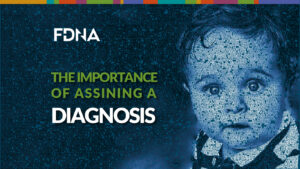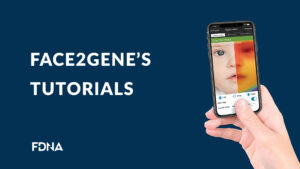Genetic sequencing is becoming a more popular diagnostic tool; however, even with all the advancements, it only reaches a diagnosis for 1 of 4 patients. Listen to GeneDx’s Kyle Retterer and FDNA’s Dekel Gelbman discuss how next-generation phenotyping (NGP) technology/precision phenomics is making way for a new era in precision medicine, driving up genetic testing performance to as high as 80% in some studies.
NGP detects physiological patterns (facial features, imaging, biometrics, etc.) to reveal disease-causing genetic variations underlying a patient’s symptoms. Understanding a person’s genetics is not enough in most cases; the missing link is NGP.
“In reality, the most power happens when you combine these
two pieces [genome and phenotype] together.”
Coupling sequencing with NGP is a major technology and healthcare breakthrough: it means that most of the 75% of people for whom genetic testing doesn’t work are no longer left at a medical dead end. NGP is taking off in world of genetics, with 70% of clinical geneticists globally using FDNA’s NGP platform, Face2Gene, and most major genetic testing labs integrating it into their day-to-day case analysis systems in the past year.
“We can start to use artificial intelligence and deep learning to leverage
all of this really well structured information […] to improve patient outcomes,
diagnosis, and to reduce the cost of testing and improve the value.”
Listen in as Kyle and Dekel discuss the benefits, hurdles, and future of phenotyping technologies.



